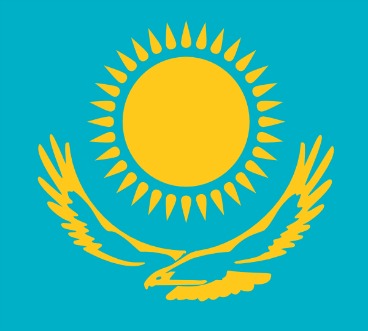Mr. Speaker, as Chairman of the U.S. Helsinki Commission I am concerned about Kazakhstan’s draft law on combating extremist activity, as the legislation could violate Kazakhstan’s OSCE commitments on religious freedom and damage the country’s positive reputation on religious tolerance and liberty. In President Nursultan Nazarbaev’s address to the parliament on September 1, he urged deputies to pass the bill while dismissing concerns about the further regulation of religion. Nevertheless, the text is problematic in several respects and would benefit from further refinement. Considering that Kazakhstan wishes to be the OSCE Chair-in-Office in 2009, I urge Kazakhstan to seek the advice of the OSCE Panel of Experts on Religious Freedom or Belief, as President Nazarbaev wisely did two years ago regarding a proposed draft law on religion.
Intended to combat terrorism, the draft law would criminalize membership in certain groups or the holding of certain beliefs, rather than combating actual criminal deeds. A critical portion of the law is also vague, as the text fails to define clearly the term “extremism.” The omission is glaring and will very likely lead to its misapplication. In addition, the draft uses the word “religious” ten times and links religion with an ill-defined understanding of “extremism.” In the context of an anti-terrorism law, such a connection gives rise to concern, as these types of statutes can easily be misused against unpopular religious communities. The draft law would strengthen state control over religious activity by giving the State Agency for Work with Religious Associations the ability to monitor groups. From its observations, the State Agency can recommend the banning of a group for “extremist activity,” but again the text does not spell out what activities would qualify.
Another problematic provision included in the draft concerns the foreign classification of a group as “extremist,” as the law will honor the classification by another country and ban their activity in Kazakhstan. This clause would in effect allow the long arm of a repressive government to outlaw a group in Kazakhstan, as well. I remember when a Moscow court labeled the Salvation Army as a “paramilitary” organization; under this draft bill, Kazakhstan could follow this erroneous assertion and ban this well-respected humanitarian organization.
Existing Kazakh law fully provides for the prosecution of criminal acts, so these new provisions are not only unnecessary but harmful. In fact, some articles of current law are too restrictive. For example, Article 375 of the Administrative Code, which requires the registration of religious groups, should be removed. I have received consistent reports since the promulgation of Article 375 of unregistered groups being penalized for legitimate activities and their facing civil and criminal sanctions. Considering the recurring misuse of civil regulations, I fear further abuse under the draft law.
I understand that President Nazarbaev is concerned about the spread of extremism in his country, especially from “radical” Islamic groups. The President may be tempted to follow the actions of his neighbors, especially Uzbekistan, but I would advise him otherwise. The Uzbek Government has for years ruthlessly clamped down on pious Muslims suspected of being associated with Hizb ut-Tahrir. This reactionary and heavy-handed policy has proven counterproductive, antagonizing the devout Muslim population and leaving it receptive to other, radical voices. Instead of defeating terrorists, demanding legal requirements for religious practice and Uzbekistan’s harsh responses have restricted the religious freedoms of the many peaceful Muslims and Christians wanting to practice their faith. Obviously, individuals involved in criminal activity in Kazakhstan should be punished. But, by banning entire groups, particularly independent mosques outside the control of the state-backed Muslim Spiritual Association, entire communities will be penalized. The result will be the inappropriate limiting of a fundamental freedom, while doing little to prevent criminal acts.
In closing, the Congress of World and Traditional Religions convened by President Nazarbaev himself was successful in bringing together Christian, Muslim, Jewish, Buddhist and Hindu leaders to discuss tolerance and understanding. I fear that the draft law on extremism, if not amended, will sully Kazakhstan’s reputation on religious tolerance by unduly limiting religious freedoms through the criminalization of certain memberships and beliefs as opposed to addressing real criminal activity.






